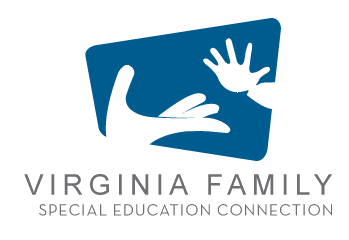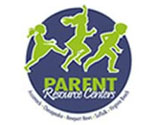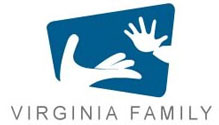High School
All students need to plan for life after high school. For students with disabilities this process can be particularly challenging. Several things need to be considered when preparing for the transition to adulthood. If students want to continue their education, do they want to pursue technical training or continue to a two year or four year college? If they seek employment, are there accommodations that will assist them in being successful in the work environment?
In Virginia, credit accommodations and locally assigned verifiable credits can assist students with disabilities working toward a standard diploma. Information on these provisions are available through your local school division. Once a student graduates with a standard or advanced diploma, or turns 22 years of age, services under the IDEA (Individuals with Disabilities Education Act) are no longer available. However, individuals with disabilities may still require supports while pursuing post-secondary education or employment. The Rehabilitation Act of 1973 and the Americans with Disabilities Act, allow for accommodations in either an academic or work place setting. If your student is attending college or a technical training school they should contact the disability services counselor for their campus location. Their company human resources specialist can provide information about workplace supports or accommodations utilized by their employer.
- ACE-IT in College Program (VCU)
- Americans with Disabilities Act
- Center for Disability Leadership (VCU)
- Center for Transition Innovations (CTI)
- Critical Decision Points for Families of Children with Disabilities (VDOE)
- Getting Ready for When Your Teen Reaches the Age of Majority: A Parent’s Guide (CPIR)
- Mason Life Program (GMU)
- National Technical Assistance Center on Transition: The Collaborative (NTACT:C)
- Navigating Through Life Infographic Series
- Office of Disability Employment Policy
- Planning Your Future A Guide To Transition (NCLD)
- Postsecondary Education Programs for Students with Disabilities Resource List
- Transfer of Rights for Students with Disabilities Upon Reaching the Age of Majority (VDOE)
- Transition IEP Checklist (PEATC)
- Virginia Department for Aging and Rehabilitative Services (DARS) (Search by County/City)
- Virginia Parents’ Tips for Transition Planning (CTI)
- Wilson Workforce and Rehabilitation Center (WWRC)
Independent living is an important aspect of any adult’s life. When determining the level of support needed for your child, several things should be carefully considered. Does your child want to live on his or her own or would they like to live with a roommate? Do they have the ability and financial resources to maintain an apartment/ home or will they need some assistance? How do I find resources in my community?
If a student is not currently receiving Supplemental Security Income (SSI) from the Social Security Administration, they may be found eligible to receive this assistance once they turn 18 years of age. Individuals already receiving case management services from the Community Services Board (CSB) can contact them to see what additional supports they may be able to provide. Medicaid Waiver Services may assist with additional resources to those found eligible to receive them. There are several Centers for Independent Living (CIL) throughout the Commonwealth of Virginia. These private nonprofit organizations help individuals with disabilities live inclusive lives in their communities.
- Center for Family Involvement
- Centers for Independent Living (Search by County/City)
- Community Services Boards (Search by County/City)
- Enhancing and Practicing Executive Function Skills with Children from Infancy to Adolescence (Activities Guide)
- Life Skills Checklist (PEATC)
- Red Book: A Summary Guide to Employment Supports for Persons with Disabilities under the Social Security Disability Insurance (SSDI) and Supplemental Security Income (SSI) Programs
- Social Security Administration: Supplemental Security Income (SSI)
- Virginia Department of Social Services (Search by County/City)
Self-advocacy skills are essential for individuals with disabilities. In the Commonwealth of Virginia, driver’s education is part of the physical education curriculum for tenth grade students. Students must complete a classroom portion of the course and obtain a driving permit before registering for the behind the wheel portion of their instruction. Students who are not trying to obtain a driver’s license can still apply for an identification card through the Department of Motor Vehicles (DMV). Other independent living skills such as accessing public transportation, applying for membership at a recreation center, opening a bank account, or shopping at the grocery store, may be included in the student’s transition plan which is part of the IEP. Parents are encouraged to reinforce these competences by providing their children with the opportunity to practice and refine them in their neighborhood and local community.
- Employment Checklist for Students (Ages 14-22) with Disabilities (PEATC)
- Expect, Engage, Empower: Successful Transitions for All! (U.S. DOE)
- Guide to Transition for Families of Youth with Disabilities in Virginia (PEATC)
- I’m Determined
- Life Skills Checklist (PEATC)
- The Art of Impact: A Handbook for Self-Determined Living
- Virginia Department of Education Transition Services (VDOE)
- Virginia Department of Motor Vehicles
- Youth Leadership Academy (YLA)
Puberty can be a time of mixed feelings for parents and pre-teens. It may be a time of pride and celebration, as well as a time of worry and confusion. It is hard for pre-teens to understand the many changes that come along with puberty. Also, parents may feel unsure of how to explain these changes to their child.
- ATN/AIR-P Puberty and Adolescent Resource: A Guide for Parents (Autism Speaks)
- Let’s Talk About Sex: Students with Disabilities and their Sexual Health (A Toolkit for Parents of Students with Disabilities) PEATC
- Teaching Children with Down Syndrome about Their Bodies, Boundaries, and Sexuality
- Sexual Health and Wellness Resources (PEATC)
- The Healthy Bodies Toolkit (Vanderbilt Kennedy Center) (English, Spanish, Portuguese, Turkish and Thai versions)
Mental health refers to our cognitive, behavioral, and emotional wellbeing - it is all about how we think, feel, and behave.
- Child and Adolescent Mental Health (National Institute of Mental Health, NIMH)
- Free Educational Brochures - Mood Disorders: Depression and Bipolar Disorder (Depression and Bipoloar Support Alliance, DBSA)
- Mental Health Resource List
- SAMHSA (Substance Abuse and Mental Health Services Administration)
- Virginia Family Network (VFM), Program of NAMI Virginia (The NAMI Virginia website is available in Arabic, Chinese, English, Filipino, French, German, Hmong, Italian, Japanese, Korean, Lao, Persian, Polish, Punjabi, Russian, Spanish, Thai and Vietnamese.)











